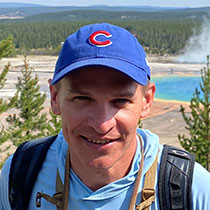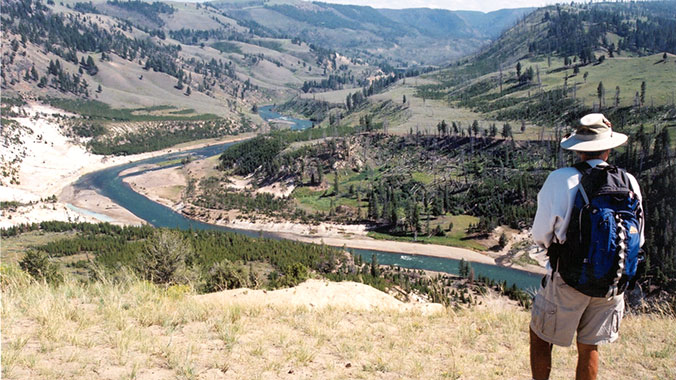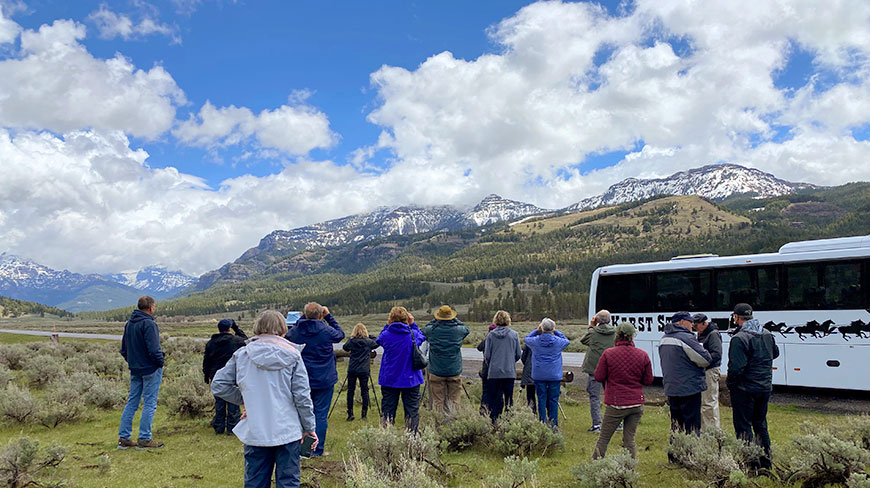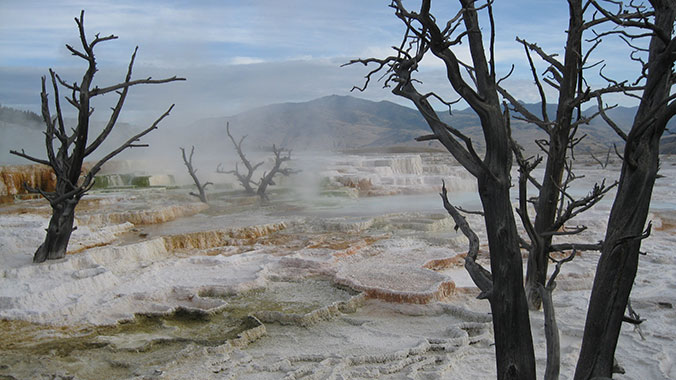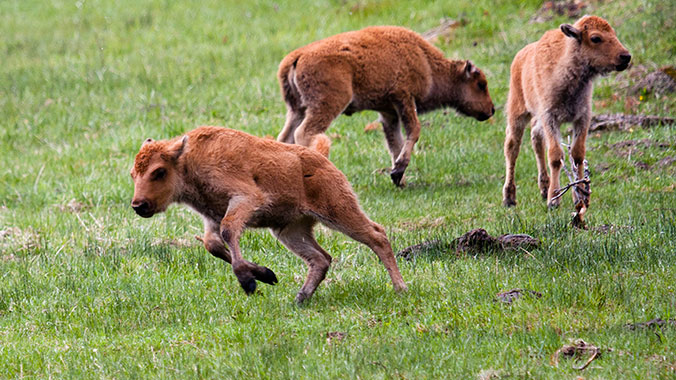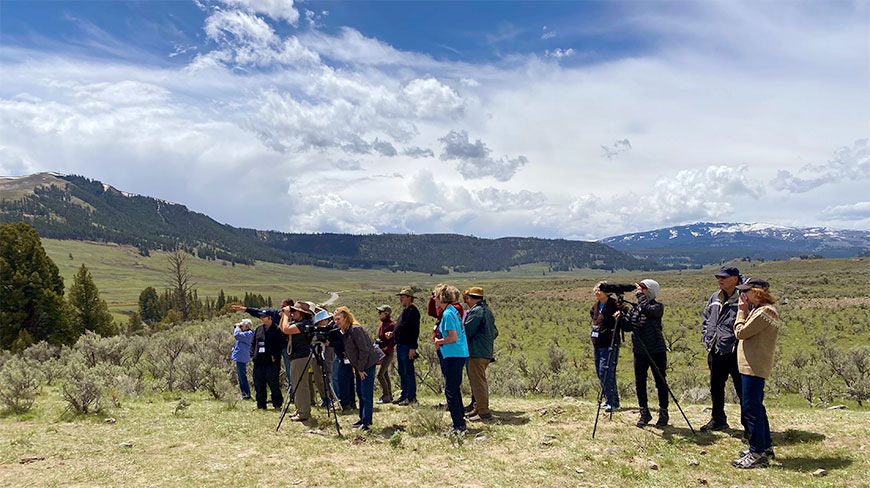After the Fires: The Ecology of Change in Yellowstone National Park
by Linda Wallace, Editor
The ravaging fires of 1988 caused many scientists to predict long-term devastation which did not come to pass. This scientific summary by wildlife biologists, ecosystem and forest scientists and landscape ecologists discusses the many things that changed and did not change in the Yellowstone area. Realize the role of fire in the ecosystem and the resiliency of nature.
Decade of the Wolf, revised and updated edition: Returning the Wild to Yellowstone
by Douglas W. Smith and Gary Ferguson
Research and storytelling meld to document wolf recovery in the Greater Yellowstone Ecosystem. Wolf biologist, Smith, and nature writer, Ferguson, provide an inside look at the Yellowstone Wolf Recovery Project ten years after the controversial decision was made by the U.S. Fish and Wildlife Services to reintroduce wolves into the park. Smith, wolf project leader who has worked with the Yellowstone Wolf Project since its inception, has studied wolves for 25 years. Ferguson, whose writing largely arises from intimate experiences, followed through the seasons, the first 14 wolves released into Yellowstone National Park. Their collaboration offers hard facts and 'impressionistic portraits of individual wolves that reveal their epic lives full of struggle and conquest.' Here is the history of the return of the top predator to Yellowstone.
Knowing Yellowstone -Science in America's First National Park
by Jerry Johnson
Presently in Yellowstone there are almost 200 active research permits that involve over 500 investigators, but only a small fraction of this scientific work is reported in the popular press. Furthermore, the results are mixed and frequently confusing to the general public. The intent of this book is to explain both the general issues associated with the region and how science is done to understand those issues, from wolf and grizzly bear research to thermal activity. It further describes how science informs policy in the Greater Yellowstone Region, how scientists from an array of disciplines do their work, and finally, how the nature of that work enables or limits future plans for managing the park and surrounding lands.
Letters from Yellowstone
by Diane Smith
Through correspondence - detailed letters and telegrams - follow an 1898 scientific expedition whose purpose is to collect flora unique to Yellowstone National Park. Learn of the park's early history, trials of pioneer scientists and the engrossing and often funny story of Cornell medical student and amateur botanist, Alexandria Bartram, who emerges as a brave leader and serious scientist. Delightful fiction.
Living Colors: Microbes of Yellowstone National Park
by MSU Biology Institute
A full-color book published by Yellowstone Forever, Montana State University Biology Institute, and Montana Institute Ecosystems that identifies different types of microbes and where to find them in the park. 52 pages-soft cover. 8" x 8"
Restoring a Presence: American Indians and Yellowstone National Park
by Peter Nabokov and Lawrence Loendorf
This first comprehensive account of Indians in and around Yellowstone corrects more than a century of ignorance. Detailed here is Yellowstone's native peoples and their story of a long engagement with a remarkable landscape.
Roadside Geology of Yellowstone Country
by William Fritz & Robert Thomas
Updated, classic roadside geology book for the Yellowstone Region explains current geological theories.
Searching for Yellowstone: Ecology and Wonder in the Last Wilderness
by Paul Schullery
Eloquent, elegant, truthful and practical - an environmental history of America's best idea, Yellowstone.
The Art of Yellowstone Science - Mammoth Hot Springs as a Window on the Universe
by Bruce W. Fouke and Tom Murphy
THIS PRODUCT IS DIGITAL ONLY
http://www.tmurphywild.com/product/the-art-of-yellowstone-science-mammoth-hot-springs-as-a-window-on-the-universe/
The Sibley Guide to Birds
by David Allen Sibley
Sibley, a talented painter, offers this wonderful, data-packed color guide with range maps and detailed descriptions of songs and calls. This book is perfect for field trips with short walks and may be too heavy for some to take to the field in which case it can await back in the car.
To Save the Wild Bison: Life on the Edge in Yellowstone
by Mary Ann Franke
The author brings clarity and revelation to one of Yellowstone's most complex struggles by tracing the history of bison and humans into the 19th century and further into the national parks era. Here's discussion of bison management and park policy - the battle over brucellosis, snowmobiles and groomed winter roads, desires of Native Americans, bison and predators.
